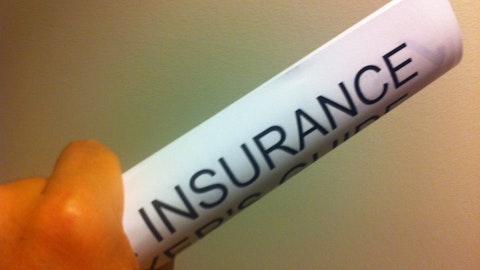Mike Zaremski: Okay, that’s helpful. And maybe if I can sneak one last one in, if Bill thinks it’s a question worthy of his wisdom. Presidential election year, to the extent the outcome is for a change of the guard, is there anything market-wise, investment portfolio-wise, or just interest rate-wise you guys are thinking of in terms of hard or dry or pivot? If that is an outcome late this year.
Rob Berkley: Before he answers that, I think we may need to read the Safe Harbor again.
BillBerkley: So, I think the bottom line is, we’ve got a $2 trillion deficit. 92% of the world’s countries have deficits. There is going to be an enormous demand for money. Number two, we are the only significant democratic country that doesn’t have any kind of national sales tax. We have some flexibility. However, you have to look at every time there’s been a need to come to a conclusion, Democrat or Republican, the conclusion has been both parties spend more money. So what that tells you is spending money and not having taxes go up are a cornerstone of the policies both parties have chosen to follow. At some point, we’re going to have to decide someone is going to have to pay for all we’re doing. And whether that’s a value-added tax or increasing income taxes or whatever, we are going to have to do something, and it’s going to happen during the next presidential period, or Social Security and Medicare, Medicaid are going to be in jeopardy.
So I don’t think it matters who’s elected. That’s a problem that we’re going to face. It won’t happen till after the election. Whomever is elected won’t matter. And I think that’s going to mean is we’re going to have some pressure on inflation, pressure on government spending, and I don’t think that means good things for interest rates coming down. I would expect interest rates at best will be flat. I think people are biased by the fact that we had an extended period with extraordinarily low interest rates. I don’t think interest rates are going to go crazy, but I don’t think we’re going to see them consequentially lower than they are now and probably a little higher.
Mike Zaremski: Appreciate it.
Rob Berkley: Thank you, Mike.
Operator: Your next question comes from the line of David Motemaden of Evercore ISI. Your line is open.
Rob Berkley: Hi, David. Good evening.
David Motemaden: Hi, Rob. Good evening. So I just had a question on the rates that you guys are seeing now in liability lines. If we exclude comp and exclude financial lines, I’m wondering if you started to see evidence of those rates accelerate in the quarter – in the fourth quarter. I’m just trying to get a sense for if we were to adjust for the mixed dynamics that you had just mentioned in your opening remarks if we are actually starting to see those rates move higher in response to the environment.
Rob Berkley: So generally speaking, we don’t break the rate data out by product line, but I guess to give you a little bit of color, I would tell you that we are very happy with the rate increases that we are achieving in much of the liability market, to say the least. We are comfortable that, putting aside some challenges within the professional liability space, the rest of it, we think that we are keeping up with trend and then some, or clearing trend by a meaningful margin. So, are things better in Q4 than they were in Q3? I don’t really have the specific numbers in front of me at the moment, but just from having my finger somewhat on the pulse, I am very comfortable that the underwriting environment for the lines that you’re referring to is every bit as healthy in Q4 as it was earlier in the year, possibly better.
And there’s nothing that leads me to believe that that momentum is going to diminish. And quite frankly, it’s just simply being driven by loss costs and the environment, which, appropriately, I think, is making people focus on it more and more. So we feel like we’re in a good place.
David Motemaden: Okay, great. Thanks. That’s encouraging. And then maybe if I could just move to the accident year loss ratio ex-cat. So if I look at the improvement year-over-year, I was wondering, and I know this is getting a little bit granular, but I think the prior period had some fire losses in there. Was the improvement really just the absence of those fire losses? And are we sort of at a clean baseline here going forward?
Rob Berkley: Rich, do you want to speak to that?
RichBaio: Sure, Rob. I would say yes. It is certainly part of the reason for the change. Quarter-over-quarters, we certainly, over the last few quarters, as Rob has alluded to, I think on some of the earlier calls, been making some changes with regards to re-underwriting some of the property risk side of things. And so, yes, there has been an improvement. Certainly, much progress has been made. Can’t say that it’s completely completed, but certainly do I anticipate a better position going forward.
David Motemaden: Understood. Thank you.
Rob Berkley: Thank you, David.
Operator: Your next question comes from the line of Ryan Tunis with Autonomous Research. Your line is open.
Rob Berkley: Hi, Ryan, good evening.




